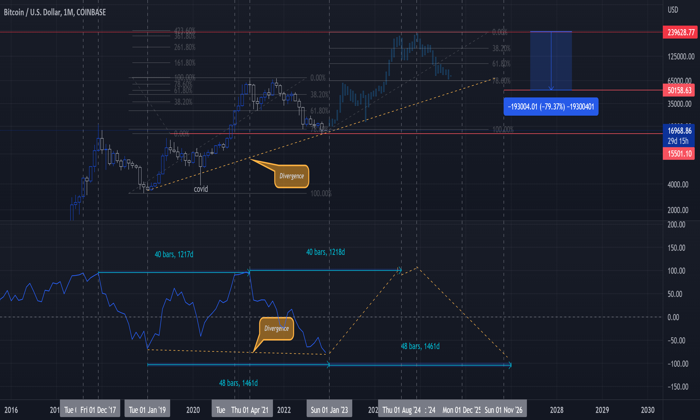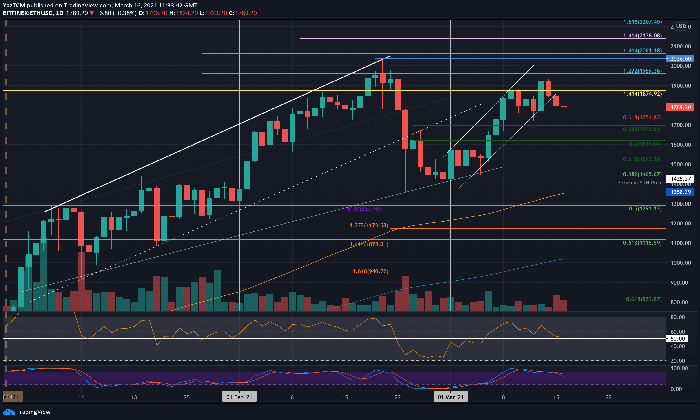Coinbase Bitcoin investment strategy has been a point of discussion since the exchange’s inception in 2012, with the company considering a Michael Saylor-like approach on several occasions. CEO Brian Armstrong shared insights during a Bloomberg call, expressing concerns that committing a significant portion of their balance sheet to Bitcoin could jeopardize the company’s financial stability. Despite these hesitations, Coinbase remains active in crypto investments, recently declaring a purchase of over $153 million in various cryptocurrencies, primarily Bitcoin. Currently, Coinbase boasts approximately 9,480 Bitcoin, making it one of the largest corporate holders globally, trailing only behind major players like MicroStrategy and Tesla. As more companies adopt similar Bitcoin investment strategies, including crypto exchange acquisitions like Coinbase’s recent $2.9 billion deal for Deribit, the landscape of corporate crypto investments is rapidly evolving.
The strategy around investing in Bitcoin, particularly by notable crypto exchanges like Coinbase, is increasingly significant in the evolving digital asset market. Coinbase’s cautious stance on aligning closely with a high-stakes investment model, akin to that of Michael Saylor, reflects a careful balancing act between risk and opportunity. The company’s recent investments in Bitcoin, alongside strategic moves such as the acquisition of Deribit, highlight a growing trend among businesses to hold substantial crypto assets. This landscape is witnessing a shift, as firms explore various investment strategies to leverage Bitcoin’s volatility and growth potential. As more institutions enter the cryptocurrency arena, understanding these developing tactics becomes essential for both investors and the market as a whole.
Coinbase Bitcoin Investment Strategy: A Cautious Approach
Coinbase’s deliberation over adopting a Michael Saylor-style Bitcoin investment strategy showcases the careful consideration the company has given to its financial strategy since its inception in 2012. In a recent call with Bloomberg, CEO Brian Armstrong expressed that there have been moments where the firm contemplated allocating up to 80% of its balance sheet into Bitcoin. However, the risks associated with such a decision, particularly concerning the company’s cash position, outweighed the potential advantages. This cautious stance helped Coinbase avoid possible pitfalls that could have endangered its operations, ensuring its longevity in the highly volatile crypto market.
CFO Alesia Haas further emphasized this pragmatic approach, explaining that Coinbase’s objective is not to compete with its customers in determining which cryptocurrencies could outperform others. By maintaining a balanced and diversified investment strategy, Coinbase aims to build trust and stability in the eyes of its users. Nonetheless, the company continues to actively invest in cryptocurrency assets, having recently purchased an additional $153 million in Bitcoin, demonstrating its commitment to maintaining a significant presence in the market while navigating the complexities of crypto investments.
The Impact of Coinbase’s Restraint on Market Perception
Coinbase’s decision to avoid a high-risk Bitcoin investment strategy has implications beyond its internal operations. This restraint signals to the broader crypto market and potential investors that Coinbase prioritizes stability and fiscal responsibility. With numerous companies, influenced by Michael Saylor’s aggressive investment model, opting to heavily invest in Bitcoin, Coinbase’s more conservative approach might attract discerning investors who value security over high-risk trading. This strategic differentiation can bolster Coinbase’s reputation as a reliable platform, arguably enhancing user loyalty amidst increasing competition in the crypto exchange sector.
Furthermore, Coinbase’s methodical approach allows the company to monitor market trends without the overwhelming burden of a highly concentrated Bitcoin investment. By holding approximately 9,480 Bitcoin, worth around $988 million, Coinbase positions itself among the leading corporate holders of Bitcoin, including giants like MicroStrategy. This enables it to benefit from price appreciation while maintaining liquidity and operational flexibility, which are essential for sustaining growth in the rapidly evolving digital asset landscape.
Coinbase’s Strategic Acquisition of Deribit
On May 8, 2024, Coinbase announced its agreement to acquire crypto derivatives platform Deribit for a landmark $2.9 billion. This acquisition is not only a significant financial outlay but also represents a strategic move to enhance Coinbase’s foothold in the crypto derivatives market. Deribit has achieved substantial trading volume, exceeding $1 trillion in 2024 alone, indicating its robust presence and potential for synergy with Coinbase’s existing operations. By integrating Deribit’s offerings, Coinbase aims to attract more sophisticated traders and institutional investors looking for derivative products in an increasingly competitive landscape.
The acquisition of Deribit marks the largest corporate acquisition within the crypto industry to date, demonstrating Coinbase’s commitment to expanding its service portfolio. By reinforcing its presence in derivatives trading, a market characterized by growing interest and complexity, Coinbase can further position itself as a leading exchange. This strategic maneuver not only diversifies Coinbase’s offerings but also enhances its ability to compete against other major entities in the crypto space, solidifying its status as a comprehensive platform for all types of digital asset trading.
The Role of Corporate Bitcoin Adoption
Coinbase’s cautious stance on Bitcoin investment is reflective of a broader trend among public companies exploring Bitcoin as an asset for treasury management. Over 100 public corporations, alongside various private firms, are beginning to adopt models similar to Michael Saylor’s, utilizing stock and debt sales to finance their Bitcoin purchases. This corporate shift highlights an emerging recognition of Bitcoin as a legitimate store of value, alongside traditional assets, and indicates a growing acceptance of cryptocurrency in corporate finance strategies.
This wave of corporate adoption can lead to increased demand and adoption within the cryptocurrency market, influencing price appreciation and long-term viability of digital assets. Coinbase, while proceeding with caution, is well-positioned to benefit from this trend as companies seek reliable exchanges and infrastructures for their investments. By maintaining a balanced approach and facilitating strategic acquisitions like Deribit, Coinbase can harness the momentum generated by corporate investments while ensuring its financial stability in this dynamic market.
Navigating Crypto Exchange Acquisitions: Coinbase’s Path Forward
In the context of growing competition within the cryptocurrency industry, Coinbase’s strategic acquisitions are a pivotal aspect of its long-term strategy. The decision to acquire Deribit reflects a keen understanding of the need to innovate and diversify services beyond spot trading. As the landscape shifts towards more complex trading products, such as futures and options, acquiring a platform with established expertise allows Coinbase to quickly enhance its capabilities without diverting excessive resources to develop these services from scratch.
Moreover, as other exchanges look to strengthen their offerings through acquisitions, Coinbase’s proactive stance may set a precedent for a wave of similar strategic maneuvers within the industry. Positioning itself as a leader through acquisitions not only enhances Coinbase’s service offerings but also establishes it as a formidable competitor against other exchanges, thereby reinforcing its market presence as a trusted platform for a variety of crypto trading needs.
Coinbase’s Investment in Bitcoin: Balancing Risk and Reward
While Coinbase has refrained from adopting an aggressive Bitcoin investment strategy akin to that of Michael Saylor, the company has nonetheless engaged in significant crypto investments. By striking a balance between risk and reward, Coinbase has managed to acquire a substantial Bitcoin reserve while mitigating potential losses associated with excessive exposure. This measured investment strategy is crucial in navigating the unpredictable nature of cryptocurrency markets, ensuring that Coinbase’s operations remain sustainable.
As Coinbase continues to allocate funds towards Bitcoin and other crypto assets, it builds its reputation not only as a trading platform but also as a responsible corporate entity committed to long-term growth. This strategic investment approach serves to reassure stakeholders and customers that Coinbase is well-prepared to weather market fluctuations, making it a more appealing option for those entering the crypto investment sphere.
Emphasizing Trust and Stability in Crypto Investments
For customers navigating the increasingly complex world of cryptocurrency investments, reassurance that their chosen exchange operates on a foundation of stability and trust is paramount. Coinbase’s conservative approach to its Bitcoin investment strategy serves to foster this trust, signaling to users that the platform prioritizes prudent financial management over speculative trading decisions. This commitment to stability positions Coinbase favorably against other exchanges that may take more aggressive risks.
By being transparent about its investing strategy, Coinbase reinforces its role as an entity that places customer safety and satisfaction at the forefront. As more individuals and corporations enter the crypto market, they seek platforms that exemplify reliability and sound judgment—qualities Coinbase has demonstrated consistently. This emphasis on trust and stability can lead to increased user acquisition and retention, further solidifying Coinbase’s leadership within the cryptocurrency exchange sector.
Leveraging Bitcoin’s Growing Popularity for Competitive Advantage
The rising popularity of Bitcoin presents both opportunities and challenges for platforms like Coinbase. As more companies and individuals engage in Bitcoin investments, the demand for robust trading platforms continues to grow. Coinbase’s strategic investments and acquisitions, including its recent acquisition of Deribit, position it to capitalize on this trend. By offering a wide array of services that cater to diverse trading preferences and investment strategies, Coinbase can attract a broad spectrum of users.
Additionally, promoting its Bitcoin holdings and investment strategy can enhance Coinbase’s brand image and appeal to both retail and institutional investors. In the competitive landscape of cryptocurrency exchanges, showcasing a comprehensive approach to Bitcoin and derivatives trading provides a significant advantage. This positioning allows Coinbase to solidify its reputation as a trusted platform, one that is responsive to market demands while maintaining a strategic, long-term outlook on investments.
Coinbase Versus Competitors: A Differentiated Investment Strategy
In a marketplace that increasingly features exchanges adopting aggressive investment strategies akin to those of Michael Saylor, Coinbase’s approach stands out. Rather than competing head-to-head in terms of Bitcoin accumulation, Coinbase is focusing on establishing a competitive edge through innovation and prudent investments. This strategy allows it to carve out a distinct identity in a crowded market, emphasizing reliability and user-centric services over speculative risks.
By maintaining significant Bitcoin holdings while continuing to prioritize responsible investment choices, Coinbase is strategically aligned to navigate market volatility. This measured path contrasts sharply with competitors that may leverage their balance sheets for aggressive Bitcoin investments, potentially exposing themselves to greater risks. As investors prioritize security, Coinbase’s differentiated approach could resonate well, attracting those seeking a stable and trustworthy exchange for their cryptocurrency transactions.
Frequently Asked Questions
What is the Coinbase Bitcoin investment strategy and how has it evolved?
The Coinbase Bitcoin investment strategy refers to the approach Coinbase considered adopting, similar to that of Michael Saylor, where a significant portion of the company’s balance sheet would be allocated to Bitcoin. Although Coinbase has contemplated this strategy at multiple points since its inception in 2012, CEO Brian Armstrong indicated that the risks involved with such a strategy could jeopardize the company’s financial health. Ultimately, Coinbase has opted for a more cautious approach while still maintaining a substantial investment in crypto assets.
How does Coinbase’s investment in Bitcoin compare to Michael Saylor’s strategy?
Michael Saylor, CEO of MicroStrategy, is well-known for heavily investing in Bitcoin, using company funds to buy large amounts of the cryptocurrency. In contrast, Coinbase has refrained from adopting a similar aggressive Bitcoin investment strategy. While Coinbase has invested in Bitcoin—currently holding approximately 9,480 BTC, valued around $988 million—it has done so cautiously to avoid competing with its own customers and risking its cash reserves.
What are the implications of Coinbase’s potential Deribit acquisition for its Bitcoin investment strategy?
The acquisition of Deribit for $2.9 billion marks a significant move by Coinbase that could bolster its Bitcoin investment strategy. By enhancing its presence in the crypto derivatives market, Coinbase can better engage with institutional investors, which could lead to increased demand for Bitcoin and potentially amplify the effects of its existing investments. This acquisition signals Coinbase’s commitment to diversifying its offerings while securing its position as a leading player in the cryptocurrency space.
How does Coinbase manage its Bitcoin investments to mitigate risks?
Coinbase manages its Bitcoin investments by balancing its portfolio and avoiding an overly aggressive stance akin to other companies like MicroStrategy. The leadership has expressed concerns about placing a large percentage of the company’s balance sheet in Bitcoin, which could expose it to high volatility and risk. Instead, Coinbase maintains a position of approximately 9,480 Bitcoin while continuing to invest strategically in various crypto assets, ensuring it remains financially stable.
What role do crypto exchange acquisitions play in shaping Coinbase’s Bitcoin strategy?
Crypto exchange acquisitions, like Coinbase’s purchase of Deribit, play a crucial role in shaping the company’s Bitcoin investment strategy. By acquiring platforms that enhance trading capabilities and attract institutional participants, Coinbase aims to boost liquidity and trading volume for Bitcoin. Such strategic moves allow Coinbase to leverage market dynamics to its advantage while reinforcing its Bitcoin holdings as part of its overall investment strategy.
Why has Coinbase chosen not to fully pursue a Michael Saylor-style Bitcoin investment strategy?
Coinbase has chosen not to fully pursue a Michael Saylor-style Bitcoin investment strategy due to concerns over financial risk and market perception. CEO Brian Armstrong and CFO Alesia Haas emphasized their desire to avoid being seen as competing with customers for investment opportunities. The company prefers a measured approach, investing in Bitcoin while ensuring that its cash position remains strong and that it does not jeopardize the stability of the exchange.
| Key Point | Details |
|---|---|
| Consideration of Bitcoin Investment | Coinbase contemplated adopting a Bitcoin investment strategy similar to Michael Saylor’s multiple times since 2012 but ultimately chose not to. |
| Concerns from Leadership | CEO Brian Armstrong indicated that such a strategy could jeopardize the company’s cash reserves, while CFO Alesia Haas highlighted the risk of competing with customers. |
| Current Holdings | Coinbase currently holds approximately 9,480 Bitcoin, valued at around $988 million, placing it among the largest corporate Bitcoin holders. |
| Recent Investment Activity | On May 8, Coinbase disclosed an investment of $153 million in crypto assets, with a focus on Bitcoin. |
| Acquisition of Deribit | Coinbase announced its acquisition of Deribit for $2.9 billion, enhancing its engagement in the crypto derivatives market significantly. |
Summary
The Coinbase Bitcoin investment strategy has been a subject of interest since the company’s inception. Although Coinbase considered adopting a significant Bitcoin investment strategy on several occasions, the leadership opted for a more cautious approach due to concerns about cash position and potential competition with its customers. Despite this, Coinbase is not shying away from the cryptocurrency market altogether, actively increasing its crypto asset investments and acquiring innovative platforms like Deribit to strengthen its market position.
The Coinbase Bitcoin investment strategy has been a topic of interest since the platform’s inception in 2012. Despite considering a move that mirrored Michael Saylor’s aggressive Bitcoin approach, Coinbase’s leadership has opted for a more cautious path to avoid jeopardizing the company’s financial stability. CEO Brian Armstrong expressed concerns that allocating a significant portion of the company’s balance sheet to Bitcoin could risk its cash position. Additionally, Coinbase aims to maintain a neutral stance by not appearing to compete against its own customers in the crypto market. Nevertheless, Coinbase remains committed to crypto investments, recently revealing an acquisition of $153 million in digital assets, primarily in Bitcoin, solidifying its status as one of the largest corporate holders in the cryptocurrency space.
Coinbase’s approach to Bitcoin investment is not just about buying cryptocurrency; it reflects a thoughtful strategy within the broader scope of crypto asset management. This digital exchange has often been at the forefront of discussions surrounding investment strategies in Bitcoin, notably considering frameworks similar to those employed by industry visionaries like Michael Saylor. Coinbase’s leadership is aware of the potential risks involved in aggressively investing in cryptocurrencies, which is why they frequently assess their financial position relative to these investments. Their recent announcement regarding the acquisition of Deribit further highlights their intention to evolve in the competitive landscape of crypto exchanges. By balancing cautious investment tactics with strategic acquisitions, Coinbase is strategically positioning itself to leverage the evolving market dynamics.















